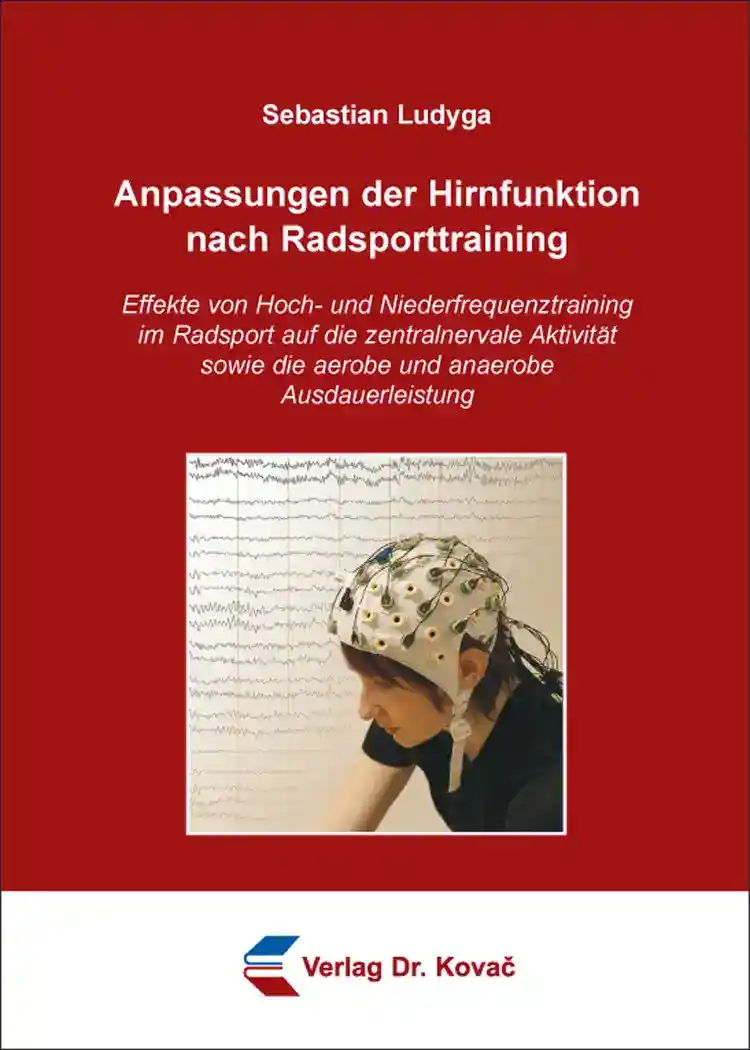Sebastian LudygaAnpassungen der Hirnfunktion nach Radsporttraining
Effekte von Hoch- und Niederfrequenztraining im Radsport auf die zentralnervale Aktivität sowie die aerobe und anaerobe Ausdauerleistungsfähigkeit
Schriften zur Sportwissenschaft, volume 124
Hamburg 2014, 266 pages
ISBN 978-3-8300-8080-0 (print) |ISBN 978-3-339-08080-6 (eBook)
About this book deutschenglish
Until a few years ago, peripheral fatigue was suggested to terminate prolonged exercise. Meanwhile, a paradigm shift has taken place, so that the brain is now proposed to be the critical organ limiting endurance performance. Accordingly, the question rises whether or not exercise induces changes in brain function, which might in turn benefit aerobic performance. Up to now, exercise-related adaptations of brain function have only been investigated at rest and during cognitive tasks, although their effects during exercise bouts might be most relevant to the field of exercise science. Body of evidence supports cadence to be a relevant training parameter, which modulates the strain on the cardiovascular system and on the musculature. Additionally, previous studies have shown that the pedal frequency directly influences brain cortical activity measured with quantitative EEG. Therefore, cadence-specific training has been assumed to provide an optimal stimulus to elicit adaptations of the cardiovascular system, the musculature and brain cortical activity. This hypothesis was tested with a randomized, controlled trial using a pre-post-design. All assessments were performed in the joint laboratory of the Sport Science Department and the “Institut für Leistungsdiagnostik und Gesundheitsfoerderung” at the Martin-Luther-University Halle-Wittenberg. The results provide new insights on the adaptive reaction of the central nervous system, the cardiovascular system and the musculature after four weeks of either high or low cadence training. The quality of the findings is supported by an assessment of the test-retest-reliability of the applied methods (electroencephalography at rest and during exercise; graded ergometer test; 10s-test & 75s-test). The results imply that cadence training should be considered an essential part of long term performance building in cyclists. Additionally, the training program has much potential to elicit neuroprotective effects that benefit brain health.Kontaktmöglichkeit
Keywords
Anaerobe AusdauerAusdauertrainingEEGFrequenztrainingGehirnfunktionHirnaktivitätMotorischer KortexRadsportSportpsychologieTrittfrequenzZNSIhr Werk im Verlag Dr. Kovač

Möchten Sie Ihre wissenschaftliche Arbeit publizieren? Erfahren Sie mehr über unsere günstigen Konditionen und unseren Service für Autorinnen und Autoren.
